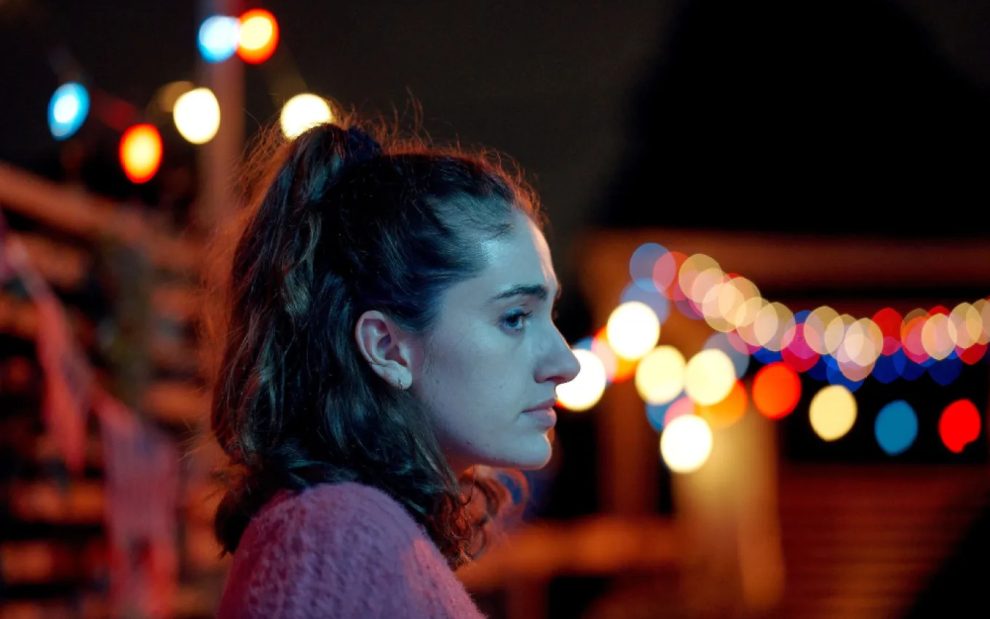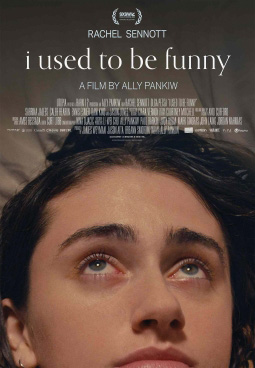I Used to be Funny
Directed by Ally Pankiw (Levelfilm, 2024)
Despite being branded a comedy-drama, I Used to be Funny is more of a drama about comedy. The film follows Sam (Rachel Sennott), a comedian and nanny in Toronto, as she struggles to return to the stage—and normal life in general—while she deals with the post-traumatic stress of an incident with her former employer, which for most of the film is only hinted at in whispers and innuendo. There are some laughs here and there, but it is by no means a funny film.
The events of the film center around the disappearance of Brooke (Olga Petsa), the girl who Sam had cared for as a nanny. We flash back and forth between the present day and Sam’s early days as a nanny, watching her relationship with Brooke both grow and shatter in the aftermath of the incident.
While Sam was once a comedian on the rise, in the present she is barely functional. We see her peck at microwave dinners and bananas and struggle even to show up to watch her friends (who have been paying her rent for a year) perform at their comedy club, let alone perform herself.
Sam’s trauma has stripped her of much of what made her feel herself: As she says poignantly, she “isn’t funny anymore.” There’s nothing humor or intelligence can do for her anymore—she’s broken down to the barest life, and it is extremely uncomfortable to watch, for both the audience and her friends. All she has left is to try to find Brooke and perhaps piece their relationship back together.
It can be easy to romanticize the process of healing, of shedding one’s defense mechanisms and old, insufficient self-conceptions for healthy vulnerability. But as Sam experiences, under our shells is raw flesh—flesh that can heal but also bleed and bruise far too easily.
I Used to Be Funny can now be rented on Apple TV+ and Amazon Prime Video.
This article also appears in the August 2024 issue of U.S. Catholic (Vol. 89, No. 8, page 38). Click here to subscribe to the magazine.
Image: Courtesy of Utopia















Add comment